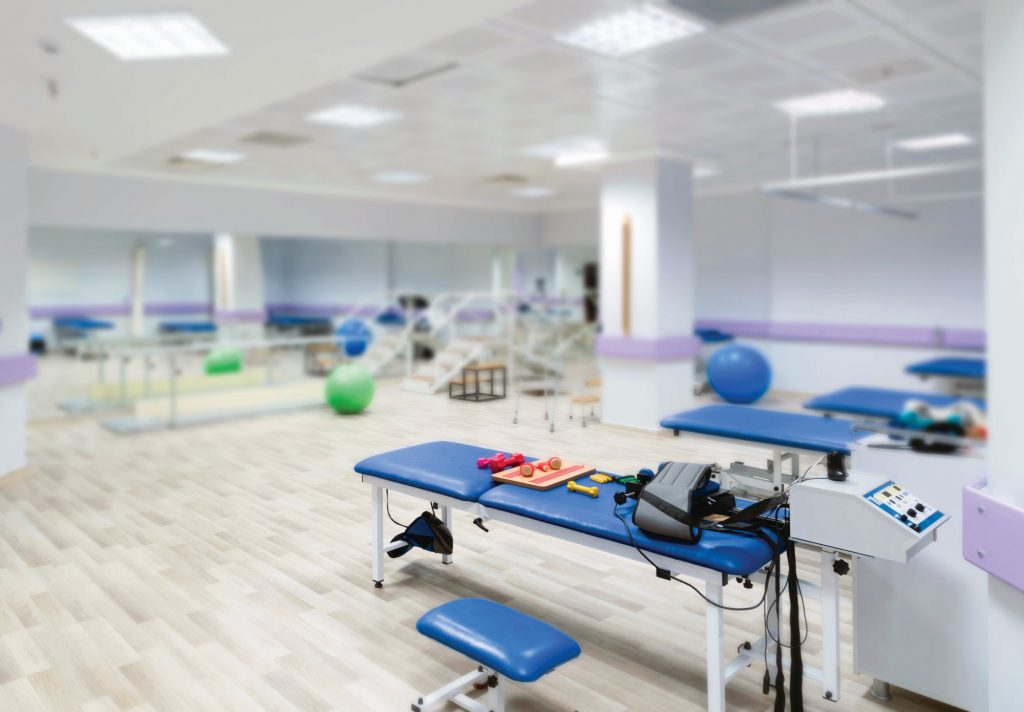Early leadership development for healthcare workers improves outcomes for both business and patients.
My twin son and daughter recently had a debate, as twins often do, about my job title. My daughter said she thought I was a teacher, and my son said he believed I was a physical therapist. The truth is I have been a practicing physical therapist for over two decades and a full-time faculty member at Seton Hall University for the past three years. Both children were technically correct, but the more apt description of my job is that of a leader. Whether I’m working with patients as a physical therapist or teaching university students, I am leading. Since achieving my doctoral degree in interdisciplinary leadership, I have reflected even further on not only my own leadership journey, but the role of leadership development in the field of health care more broadly. Now, perhaps more than ever, the healthcare field would benefit from providing leadership development for its leaders at all levels.
An important part of Seton Hall’s mission statement includes the task of preparing students to be leaders in their professions and in their communities. I love the message that mission conveys because it highlights how leadership development starts well before we enter the workforce. Viewing leadership this way helps to dispel the notion of leadership being tied to a specific title or position. In health care today, leadership is too often viewed as an essential asset for a few individuals in designated management positions. I think that leadership instead should be viewed as an essential asset for all healthcare workers, especially in the current climate. Moreover, I believe more can be done to provide leadership development opportunities at the undergraduate and graduate levels.
Balancing Business Needs and Patient Care
Leaders in health care face a challenging balancing act. They have to balance the external business demands of the industry with an internal commitment to delivering quality patient care and organizational outcomes. They have to find creative ways to address the diverse needs of patients and members of their healthcare team. Making strategic investments in leader development can improve accountability and enhance organizational performance. Developing leaders who can balance the business end of health care with compassionate patient care can enhance team effectiveness, increase efficiency, reduce healthcare costs and improve patient satisfaction.
Leadership Skills for Today’s Healthcare Needs
To accomplish this, today’s healthcare workers require specific skills that are often lacking or even absent in those with little or no leadership development. First, today’s leaders must learn how to empower their followers. Leaders who fail to properly teach, coach and mentor their teams to innovate and solve problems on their own often find it difficult to survive in the hectic and ever-changing field of health care today.

It is not enough for healthcare leaders to be technically skilled. We need healthcare leaders who can collaborate and address complex problems in a constantly evolving field.
Today’s healthcare leaders must also possess a high level of emotional intelligence. Those who can manage their own emotions, remain positive in the face of tremendous adversity and keep their teams focused on the task at hand can successfully navigate any crisis, even the current pandemic. Those who cannot often experience burnout or create toxic work environments that are bad for both employees and patients. Unlike many other professions, healthcare leaders also have to effectively work with individuals of all ages. This includes finding ways to relate to patients of different ages, from pediatric clients to older adults, and interacting with colleagues from different generations, from Gen Z to baby boomers.
Additionally, the future of health care relies on individuals skilled in the area of collaborative, team-based care. While team composition can vary, all healthcare workers need to effectively communicate, professionally interact and understand the value that fellow professionals bring to the fight in order to work with patients and positively contribute to a team. It is not enough for healthcare leaders to be technically skilled. We need healthcare leaders who can collaborate and address complex problems in a constantly evolving field.
And when collaborative leaders in health care are successful in finding innovative solutions to complex problems, they must possess the change management skills necessary to quickly implement them. Research reveals that it takes, on average, 17 years to successfully adopt a new practice, even after evidence shows positive impacts on patients. This gap between when an innovation has been proven effective to when it is regularly provided to patients is not good enough to meet the needs of the vulnerable populations we serve. Although both patients and healthcare providers find this unacceptable, what are we doing to equip healthcare leaders at all levels with the tools to execute effective change management? While resistance to change is often part of human nature and prevalent in every profession, this collective failure to manage change greatly hinders our ability to move health care forward. Effective leadership development helps cultivate leaders who can anticipate problems in managing change and implement needed changes faster.

How Leadership Development in Other Fields Can Benefit Healthcare Leaders
As our population ages, technology advances, new challenges arise, and healthcare demands continue to change, we must invest in the leadership development of healthcare workers. The fact that there are limited comprehensive programs that address this need in health care is a problem. Principles of leadership development used in other fields can serve as a framework for this type of education. For example, student leadership development programs in the field of business integrate practice and practical application with feedback, group process and reflection.
Healthcare workers are adept at using a range of different sources and group processes to build their knowledge, role play and simulate different scenarios. They also develop through practice, integrate feedback and reflect upon their experiences to effectively address the varied clinical needs of their patients. This type of experiential learning is incorporated into the clinical training of healthcare workers at all levels, from didactic education to continuing education courses and mentorship experiences within an organization. If similar principles are applied to leadership development in the healthcare field, current and future healthcare workers can be best positioned to make a positive and lasting impact in our society.

Lauren Snowdon PT DPT Ed.d.
Dr. Snowdon has been a practicing physical therapist since 2001. She gained expertise in clinical practice, professional collaboration and leadership at a top rehabilitation center, and earned her Doctorate in Interdisciplinary Leadership from Creighton University. She is the Director of Clinical Education in the Doctor of Physical Therapy Program at Seton Hall teaching courses on neurologic physical therapy practice and clinical education.






